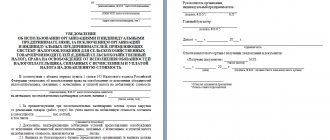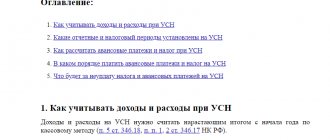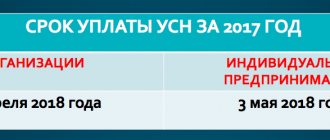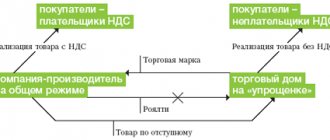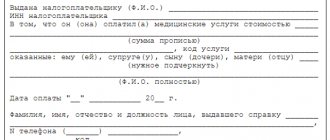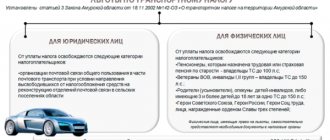The main sign of a successful business is profitability. And it is achieved not only through income growth, but also through cost reduction. Every entrepreneur knows that a significant part of the money earned goes to taxes. Therefore, it is extremely important to approach their payment rationally and use all legal opportunities to avoid unnecessary expenses. One of the largest payments is value added tax, so we will talk about it.
Below we will talk about ways to reduce tax amounts, schemes in which VAT can be avoided at all, as well as the main conditions for the correct optimization of this tax. An important note - our story will be exclusively about legal methods of reducing the tax burden.
What is the beauty of liberation?
For 12 calendar months (they begin to flow from the month in which you notified your Federal Tax Service of your desire to receive an exemption), you will not have to : - charge and pay VAT on transactions in the domestic Russian market. And “input” VAT on purchased goods (works, services) is included in their cost; — issue advance invoices and those invoices that you issue for yourself in one copy (for example, when performing construction and installation work); — submit tax returns (Decision of the Supreme Arbitration Court of the Russian Federation dated February 13, 2003 N 10462/02; Letter of the Federal Tax Service of Russia for Moscow dated November 17, 2009 N 16-15/120379).
What will liberation not save you from?
You will have to pay VAT : - when importing goods (Clause 3 of Article 145, paragraph 4 of paragraph 1 of Article 146 of the Tax Code of the Russian Federation); - when performing the duties of a tax agent for VAT (for example, when leasing state or municipal property) (Article 161 of the Tax Code of the Russian Federation). In addition, despite the exemption, you will have to: - issue shipping invoices to customers in which VAT is not allocated and the note “Without tax (VAT)” is made (Clause 5 of Article 168 of the Tax Code of the Russian Federation). Ignoring this requirement for at least one quarter is fraught with a fine from the inspectorate of 10,000 rubles. And if invoices were not issued for two or more quarters - then 30,000 rubles. (Article 120 of the Tax Code of the Russian Federation); — maintain books of purchases and sales, as well as journals of received and issued invoices. After all, those exempt from VAT do not cease to be its payers (Clause 3 of Article 169 of the Tax Code of the Russian Federation), they simply receive a temporary tax benefit. In addition, the sales book and journal will be needed later in order to confirm compliance with the revenue limit for the period of application of the exemption, as well as to extend the exemption. You will also have to submit to the inspection VAT declarations for those quarters in which you (Clause 3 of the Procedure, approved by Order of the Ministry of Finance of Russia dated October 15, 2009 N 104n): ( or ) being exempt from VAT, still issued an invoice with allocated tax amount (Letter of the Ministry of Finance of Russia dated July 16, 2009 N 03-07-14/69). The submitted VAT will have to be paid to the budget, but you will not lose the right to be exempt from VAT (Letter of the Ministry of Finance of Russia dated May 31, 2007 N 03-07-14/16); ( or ) acted as a tax agent for VAT (Clause 1 of the Procedure, approved by Order of the Ministry of Finance of Russia dated October 15, 2009 N 104n); ( or ) paid VAT when importing goods from Belarus or Kazakhstan (Clause 3 of Article 145, paragraph 4 of paragraph 1 of Article 146 of the Tax Code of the Russian Federation; Order of the Ministry of Finance of Russia dated July 7, 2010 N 69n).
Agency agreements
Next we will look at several more ways to avoid paying VAT legally, but they already fall into the risky category. In principle, if you do everything correctly and can justify your decisions, then the tax inspectorate will not particularly find fault with you. So, let's look at how so-called agency agreements work. There is a company that conducts business activities. She creates a second company that operates on a simplified scheme. Then the two companies enter into a commission agreement between themselves. The second company, operating under the simplified tax system, purchases raw materials or goods, after which it transfers them to the main organization for commission. For such a service, the intermediary receives a fee.
Let us explain the meaning of such a scheme. A small company operates according to a simplified scheme and does not pay VAT, that is, it purchases products or raw materials at cost. She then hands it over to a large company. She gets the materials they need at 20% cheaper. She pays VAT only on the remuneration transferred to the intermediary, which usually amounts to several thousand rubles.
An experienced accountant will help you legally reduce VAT
Who is eligible for release?
You can receive an exemption from VAT if (Clause 1, 2 of Article 145 of the Tax Code of the Russian Federation): - your revenue excluding VAT for the 3 months preceding the month from which you intend to apply the exemption did not exceed 2 million rubles; - you do not sell excisable goods (for example, alcohol, tobacco, gasoline (Article 181 of the Tax Code of the Russian Federation)) or keep separate records of transactions for the sale of excisable and non-excisable goods (Clause 3 of the reasoning part of the Definition of the Constitutional Court of the Russian Federation of November 10, 2002 N 313-O) ; — your company is not a participant in the Skolkovo project. Some people think that the presence of arrears on VAT or other taxes is an obstacle to obtaining an exemption. This is not so, as a specialist from the Ministry of Finance confirmed to us.
From authoritative sources Elena Nikolaevna Vikhlyaeva, Advisor to the Indirect Taxes Department of the Department of Tax and Customs Tariff Policy of the Ministry of Finance of Russia “Article 145 of the Tax Code of the Russian Federation does not link the application of VAT exemption to the taxpayer’s absence of arrears on this tax or other taxes.”
Why is this necessary?
It is necessary to clearly understand that the goal of a business cannot be to obtain tax benefits. You can simply reduce your expenses a little while doing business and nothing more. Thus, Article 54.1 of the Tax Code states that the tax base can be reduced if an entrepreneur falls under certain conditions, but at the same time he must comply with certain rules. The main rule is that an entrepreneur or organization has a key goal that is not related to an attempt to reduce the tax rate. It is based on this rule that you should approach the process. Because if the tax authorities suspect that your actions were taken in order to deliberately reduce VAT, then they will activate their powers and capabilities so that you cannot circumvent the requirements of the law.
VAT can often be optimized or reduced
Let's give an example. To work under a simplified regime, the income of an individual entrepreneur or company must not exceed 150 million rubles per year, and the number of employees must be less than 100 people. If a company exceeds these limits, it is transferred to the general taxation system, which leads to more complicated administration and increased tax costs. Therefore, the owner of the company divides it into two or three parts, and each part works on the simplified tax system. This option is carefully controlled by tax authorities: if it is discovered that the division was made solely for the purpose of tax evasion, the entrepreneur will be fined and forced to switch to the required system. But this does not mean that if a company has 10 small stores in different parts of the city or in regions open at different times, this will be recognized as a violation. Here you will have a clear justification that you developed gradually, captured new markets and it is simply inappropriate to consider this operation as tax evasion.
Which revenue should be taken into account when testing eligibility for exemption and which should not?
The Tax Code does not answer this question. If you read literally Art. 145 of the Tax Code, it turns out that absolutely all revenue must be taken into account, even that which is not subject to VAT. There have been no clarifications on this topic for a long time. Therefore, we turned to a specialist from the Ministry of Finance.
From authoritative sources Vikhlyaeva E.N., Ministry of Finance of Russia “When calculating revenue for the purposes of VAT exemption, it is necessary to take into account all proceeds from the sale of goods (including excisable goods), works, services (excluding tax), including revenue: - from operations, not subject to VAT (Article 149, paragraph 2 of Article 156 of the Tax Code of the Russian Federation); — from transactions not recognized as subject to VAT (Clause 2 of Article 146 of the Tax Code of the Russian Federation); - from the sale of goods (performance of work, provision of services), the place of sale of which is not recognized as the territory of the Russian Federation (Articles 147, 148 of the Tax Code of the Russian Federation). At the same time, revenues should not include amounts received from retail trade subject to UTII if the VAT payer combines the general taxation regime with the payment of an “imputed” tax.”
Note: some courts believe that for the purposes of VAT exemption it is not necessary to include in revenue amounts received from transactions that are not subject to VAT or do not form an object for this tax (Resolution of the Federal Arbitration Court of the ZSO dated March 20, 2012 in case No. A45-11287/2011; FAS VSO dated 01/18/2011 in case No. A19-9447/10; FAS SKO dated 06/10/2011 in case No. A01-1343/2010). But there are those who share the position of the tax authorities (Resolution 12 AAS dated 03/06/2012 in case N A06-1876/2011; FAS PO dated 11/10/2011 in case N A06-1875/2011; FAS SZO dated 11/30/2010 in case N A66-3032/2010).
Zero and reduced rate
Article 164 of the Tax Code states that some categories of goods and services are subject to a non-standard rate, which from January 1, 2021 rises to 20%, and preferential rates to 10 and 0%, respectively. The article lists in detail all the options and categories of goods that fall under these benefits. For example, 10 percent is applied to essential products: milk, meat, flour, bread, vegetables, cereals, etc. This also includes the sale of medicines and items for children. Export and international transport operate at a zero rate. If you work with these categories of goods, then you do not need to register anything separately. You simply add 10% to the price instead of 20, which allows you to reduce the cost of production and increase its competitiveness.
And if there is no income, can the exemption be applied?
If there was no revenue for the previous 3 months before the exemption was applied, then it was zero. Zero, as you understand, is less than 2 million rubles. Therefore, it seems that nothing prevents the application of exemption. The same point of view was expressed (albeit for a long time) by Moscow tax officials (Letter of the Federal Tax Service of Russia for Moscow dated September 4, 2006 N 19-11/077487). However, soon after this, the Ministry of Finance issued a Letter with the opposite position (Letter of the Ministry of Finance of Russia dated March 28, 2007 N 03-07-14/11). Even now, financial department specialists are against the release.
From authoritative sources Vikhlyaeva E.N., Ministry of Finance of Russia “If during 3 consecutive calendar months preceding the month from which the taxpayer would like to apply the VAT exemption, he had no revenue from the sale of goods, works, services, then there are grounds for using the exemption not available".
Company reorganization
The previously described methods are good because they can be used systematically, that is, over a long period of time. But in some cases, situations arise when a company needs to refuse to pay VAT one-time. For example, she buys or sells an expensive asset, and the VAT amount is several million. The tax office is guaranteed to consider such transfers, even if they are made free of charge, as the sale of goods/property with all the ensuing consequences. But you can still bypass the one-time transfer by reorganizing by allocation. Let's look at how this works.
The scheme is similar to the previous one. A large company operating on the simplified tax system allocates a small company to the simplified tax system. According to the law, the spun-off company is the legal successor during the reorganization procedure. That is, if the main company transfers property to the second, then this is not a sale, but an inheritance, which is why no tax base is formed. Then the second company, which is not a VAT payer, already transfers the equipment, sells it or performs other operations.
Attention:
This method is quite complicated and can take a lot of time, but this is a really legal step that tax authorities will not be able to challenge or impose sanctions for inheritance.
How to get exemption?
It is necessary to submit to the inspectorate at the place of registration a notification about the use of the right to exemption in the approved form (Approved by Order of the Ministry of Taxes of Russia of July 4, 2002 N BG-3-03/342), as well as certain documents (Clause 3, 6 of Article 145 of the Tax Code of the Russian Federation) .
| The situation at the time of submitting documents for release | List of submitted documents |
| You are in general mode | — an extract from the balance sheet (for organizations) or from the book of income and expenses and business transactions (for entrepreneurs); — extract from the sales book; — a copy of the log of received and issued invoices |
| You switch to general mode: | Extract from the relevant book of income and expenses |
| (or) with the simplified tax system or unified agricultural tax | |
| (or) with UTII | An extract from the balance sheet (for organizations) or from the book of income and expenses and business transactions (for imputed entrepreneurs who keep records) |
An extract from the balance sheet must be made on the 1st day of the month from which you began to apply the exemption, and extracts from books and magazines must be made for the 3 months preceding the exemption. All extracts can be submitted to the Federal Tax Service in any form. Or you can submit regular photocopies of balance sheets, income and expense books, sales books as an extract, certified by the signature of the manager (entrepreneur) and seal.
We warn the manager If a company, being exempt from VAT, issues an invoice with tax to please the client , then, despite the exemption, it will have to pay VAT to the budget .
These documents must be brought to the inspection no later than the 20th day of the month in which you began to apply the exemption (Clause 3 of Article 145 of the Tax Code of the Russian Federation). If you send them by mail, then do it 6 working days before the 21st day of the specified month (Clause 6, Article 6.1, Clause 7, Article 145 of the Tax Code of the Russian Federation), and preferably by registered mail with a list of the attachments. Let's say you wanted to apply the exemption from May 2012. Then the notification had to be submitted no later than May 21, since May 20 is a day off (Clause 7, Article 6.1 of the Tax Code of the Russian Federation). The last day to mail the notice was May 14. We do not advise you to be late in submitting your documents, since the tax authorities will probably consider that in this case you are not entitled to VAT exemption. The Ministry of Finance specialists agree with them.
From authoritative sources Vikhlyaeva E.N., Ministry of Finance of Russia “Failure to submit to the tax authority within the prescribed period the documents required for VAT exemption means that the taxpayer does not have the right to use this benefit.”
Accordingly, having discovered that you are using the exemption, and the documents were sent after the established deadline, the inspectors will certainly not miss the opportunity: - charge you VAT from the month in which you started using the exemption, and penalties; — fine for non-payment of tax and failure to submit declarations; — block an account for failure to submit a declaration (Clause 3 of Article 76 of the Tax Code of the Russian Federation; Resolution of the Federal Antimonopoly Service of the Eastern Military District dated April 20, 2011 in case No. A29-5471/2010). By the way, similar problems await you if the tax authorities subsequently find out that the documents you submitted contained false information and in fact you did not meet the two-million dollar revenue limit (Clause 5 of Article 145 of the Tax Code of the Russian Federation).
Note Some courts believe that late submission of documents (Resolutions of the FAS ZSO dated November 24, 2011 in case No. A75-265/2011; FAS SZO dated December 7, 2010 in case No. A42-2169/2010; FAS PO dated August 10, 2010 in the case N A49-11485/2009), their submission before the start of the tax audit or failure to submit at all (Resolutions of the Federal Antimonopoly Service of Ukraine dated 02/21/2011 N F09-11622/10-S2, dated 08/21/2009 N F09-5886/09-S2) do not deprive the taxpayer the right to apply for an exemption if all other conditions are met. But there are those who think differently (Resolutions of the Federal Antimonopoly Service of the Eastern Military District dated 06/09/2011 in case N A29-5506/2010; 18 AAS dated 07/04/2011 N 18AP-5721/2011; 3 AAS dated 12/12/2011 in case N A33-3048 /2011). Therefore, it cannot be guaranteed that you will be able to recover additional charges and fines through the court.
Already from the beginning of the month in which you promptly submitted a notice of release to the inspectorate with all supporting documents, you will be required to use the benefit, since it cannot be refused (Clause 4 of Article 145 of the Tax Code of the Russian Federation). This means that you will not have the right to claim VAT deductions. You can return to the general procedure for calculating and paying VAT only when 12 consecutive calendar months have expired from the beginning of the exemption. In this case, it is better for you to submit to the inspection a notice of refusal to use the right to exemption in any form (Letter of the Ministry of Taxes and Taxes of Russia dated September 30, 2002 N VG-6-03 / [email protected] ).
Attention! Having submitted documents for VAT exemption, you do not need to wait for any special permission from the tax authorities to apply the benefit.
Deferment of payments by buyers
So, if you see that your sales (payment received) are about to cross the threshold barrier of 80 million rubles at the end of the year, then the easiest and safest way is to keep your revenue within the limit by providing customers with a deferment in paying for agricultural products or services. In the Unified Agricultural Tax, income is taken into account at the time of payment (clause 5 of Article 346.5 of the Tax Code), which is how the criterion for applying VAT is actually calculated. This means that if you postpone the payment deadline to 2021 (even to the beginning of January), then the revenue will not need to be taken into account in 2021.
The seller may establish a deferment by agreement with the buyer. No one is stopping you from postponing the payment deadline for a month or another period. To do this, you need to conclude an additional agreement with the buyer, which specifies a new payment period. If, according to the supply contract, when it is changed, it is not necessary to conclude an additional agreement, then the deferment can be arranged in another way. For example, the buyer sends a letter requesting a deferment of payment, and the supplier also confirms in writing his agreement to the deferment.
Before concluding an additional agreement to the contract, decide whether you will charge interest for the deferred payment. We are talking about legal interest that the debtor must pay during a deferment for the use of the creditor’s money (Article 317.1 of the Civil Code). In this case, the delay is beneficial to the seller, so you may decide not to collect legal interest from the buyer. Then fix it in the contract. It is safer to include such a condition in any contracts, including delivery. For delivery, there is a special rule that the parties provide for interest for deferment in the contract (Article 488 of the Civil Code). So if the contract doesn't mention interest, you don't have to pay it.
What should you do before you start applying the exemption?
From the month in which you begin to apply the exemption, “input” VAT on purchased goods, works, and services will need to be taken into account in their cost (Subclause 3 of clause 2 of Article 170 of the Tax Code of the Russian Federation). Therefore, in the quarter preceding the release, you must restore and pay to the budget the “input” VAT, previously accepted for deduction, on all of your remaining inventories, fixed assets and intangible assets (Clause 8 of Article 145 of the Tax Code of the Russian Federation). For fixed assets, the tax must be restored from their residual (book) value according to accounting data (Subclause 2, clause 3, Article 170 of the Tax Code of the Russian Federation; Letter of the Ministry of Finance of Russia dated 04/12/2007 N 03-07-11/106; Resolution of the Federal Antimonopoly Service of the Eastern Military District dated 04/14/2011 in case No. A43-14553/2010), while the restored tax is included in other expenses. Let us remind you that real estate has its own special procedure for VAT recovery, prescribed in clause 6 of Art. 171 Tax Code of the Russian Federation.
Note Some courts believe that for OS and intangible assets it is not necessary to restore VAT before exemption (Resolutions of the Federal Antimonopoly Service dated November 21, 2011 in case No. A55-736/2011; Federal Antimonopoly Service DVO dated June 1, 2010 No. F03-3642/2010).
Also, while you have not yet become an “osvobozhdeniye”, you can deduct the tax paid on the advances received, but on the condition that (Clause 5 of Article 171 of the Tax Code of the Russian Federation): (or) you terminate the previously concluded agreement and return the advance back ; ( or ) you will change the terms of the contract price and return only the amount of advance VAT. If you do not return anything to customers, then upon shipment you do not declare a deduction of VAT from the advance payment, but you do not need to charge VAT on the cost of the goods shipped.
Organization of a partnership
Another specific option for one-time evasion of VAT is the creation of a simple partnership. This term refers to a variant of cooperation between two companies that are not related to each other. The point is this: they unite for a certain period in order to achieve a set goal. When this is achieved, the partnership is terminated and the companies are dissolved. At the same time, there is no need to somehow register such relations with the tax authorities; you just need to conclude an agreement on joint activities, which will spell out the terms of cooperation.
The meaning of this scheme is that two companies have the opportunity to transfer property, goods, raw materials or intellectual property to each other, while such transfer does not fall under the tax base. Let's look at this option using an example. and Star create a partnership and sign a corresponding agreement. contributes the amount of money necessary to achieve the goal and provides its specialists, and the Star company provides its premises and equipment.
From a legal point of view, it is considered that the contributions of two companies are identical if they have come to an agreement: no one will evaluate them. After the goal was achieved, Star and Nika break off cooperation. They close the contract and take their property. But the fact is that they can take away not what they invested, but something else. The Star company receives money instead of equipment, and equipment, that is, the exchange procedure took place in full.
This option is quite effective, with the only condition: companies need to prove that the purpose of their association is real and not fictitious. You also cannot achieve your goal in a day or a week: tax authorities will consider this a violation. Well, one last thing: if the Federal Tax Service employees don’t like something, then you will need to prove your intentions, perhaps even in court. That is, it makes no sense to deal with the little things, but if we are talking about hundreds of thousands or millions of taxes, then this option is quite possible.
There are other options for evading VAT, but they are quite complex and belong to “gray” schemes, that is, you can be punished for them. For example, an advance payment is replaced with a bill or loan. You also need to pay tax for the prepayment, and if a loan is issued, it is not included in the taxable base. Although it is possible to disguise payments in this way, you still need to act with extreme caution. This also includes disguising a penalty as payment for a product or part of it: these are risky schemes that may not work.



